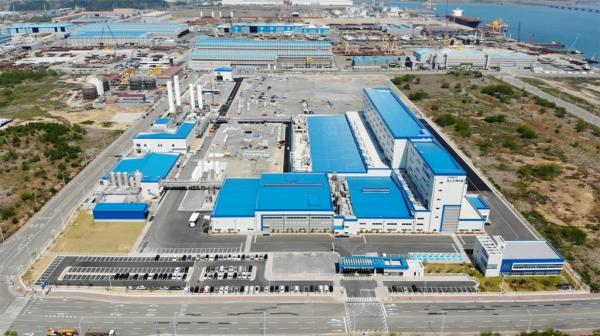South Korea’s steel group Posco aims to control 20% of the global lithium and nickel battery materials supply chain by the close of the decade.
The company plans to become a top player in the global battery material market by producing around 220,000 tons of lithium and 100,000 tons of nickel by 2030, reported South Korean news outlet Aju Business Daily.
The steel group aims to achieve annual sales of 23 trillion won ($21 billion) in secondary battery materials within a decade, according to the report.
Posco Lithium eXtraction (POSLX ) technology, uses ore and brine to make battery-grade lithium. The firm began producing lithium carbonate and lithium hydroxide in 2017 and 2018, respectively.
The company has a long-term contract with lithium producer Pilbara Minerals in Australia to purchase lithium concentrate, the annual production capacity from which is projected at 40,000 tons.
It also has a contract with Galaxy Resources Limited and acquired mining rights at Hombre Muerto Salt Lake in Argentina.
In June, Posco Chemical— formed in 2019 via a merger between Posco ChemTech and PoscoESM—added a further 25,000 ton per year production line at its cathode material plant 2 near Gwangyang Works, South Korea. This increased the plant’s production capacity to 30,000 tons a year.
Including its Gumi plant (9,000 tons)and its Chinese ZPHE plant (5,000 tons), the firm has a cathode material production capacity of 44,000 tons per year in total.
ZPHE (standing for Zhejiang POSCO-HUAYOU ESM) is a joint venture with China’s Huayou Cobalt.
Once the lithium ore plant in Gwangyag and the saltwater lithium plant in Argentina are completed in 2022 and 2023, respectively, Posco estimates it will have annual production capacity of lithium hydroxide to 65,000 tons.
The firm is also focusing on the production of anode materials, having completed the construction of the second anode material factory in Sejong at the end of 2019.The company is expanding the anode production system, which amounts to 44,000 tons per year.












